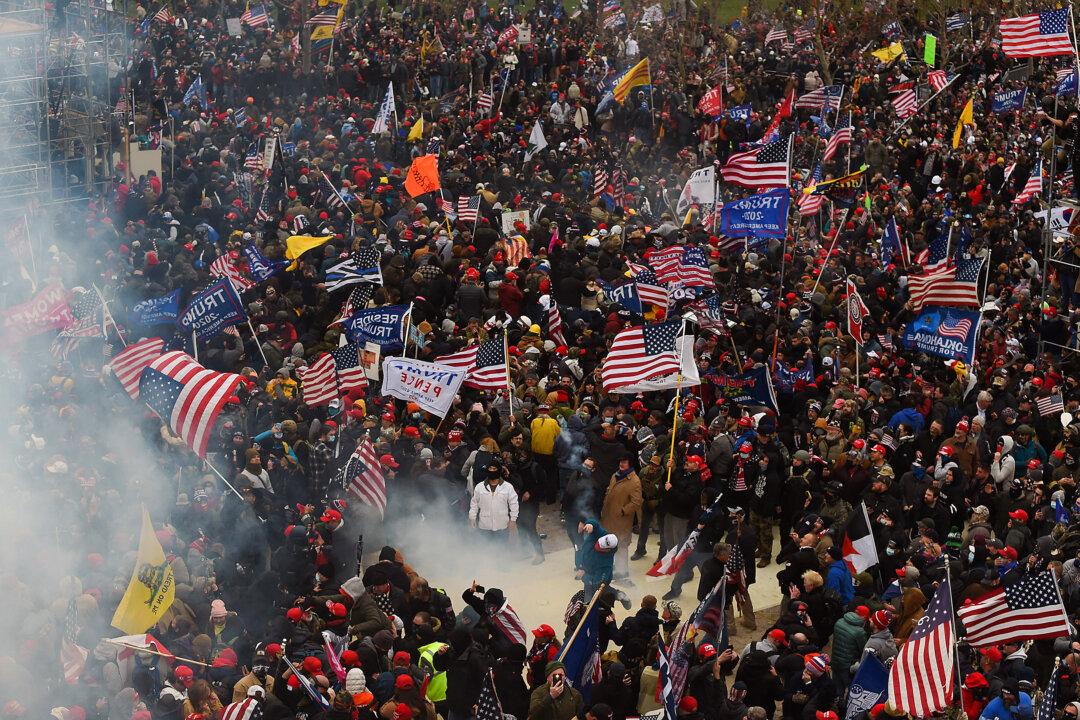A frequently used Department of Justice claim that Jan. 6 protesters share equal guilt for rioting, like raindrops that join to create a flood, is unconstitutional and should be banned from court, a defense attorney argues.
“The criminal law in the United States requires that to prove a person guilty of a crime, prosecutors must prove the individual guilt of that particular defendant,” wrote attorney John Pierce.





